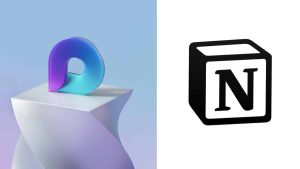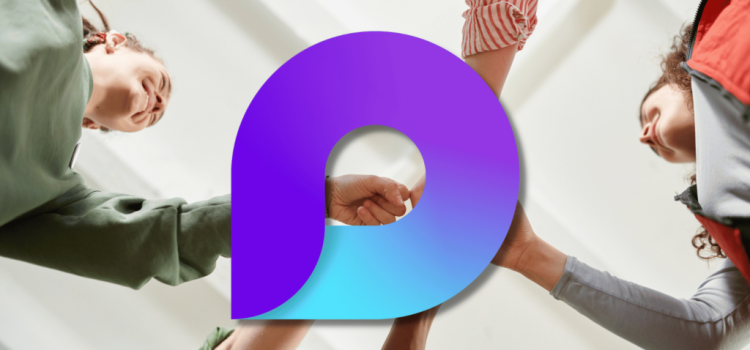
How Loop Challenges Notion with Its Discord-Inspired Co-Creation Experience
Introduction
Hello, I’m Fred, a freelance writer and content creator. I enjoy discovering new tools and technologies that can help me work more efficiently and creatively. In this article, I’m going to review two of the most advanced and flexible collaboration tools available: Notion and Loop.
Notion is a productivity platform that enables you to create, organize, and collaborate on wiki, doc, and project content in one place. You can customize your pages, use AI, and access the unlimited potential of Notion with a free account.
Loop is Microsoft’s latest co-creation experience that connects teams, content, and tasks across your apps and devices. Loop combines a flexible canvas with portable components that move freely and stay in sync across applications, allowing teams to think, plan, and create together.
Both tools are designed to support remote workers, content creators, and collaboration tool evaluators. But which one is better for your needs? Let’s find out.
Features
Notion and Loop have many features in common, but they also have some unique strengths and weaknesses. Here are some of the main aspects to consider when choosing between them:
User Interface
Notion has a simple and elegant user interface that is easy to navigate and customize. You can create pages, subpages, and databases within your workspace, and use drag and drop to add different types of content, such as text, images, videos, tables, lists, and more. You can also use templates, icons, and emojis to make your pages more appealing and organized.
Loop has a vibrant and interactive user interface that is designed to facilitate co-creation and communication. You can create workspaces, pages, and components within your Loop app, and use the insert menu to add various types of content, such as text, images, videos, tables, lists, notes, and more. You can also use Copilot, an AI assistant that helps you with suggestions, templates, and insights.
Collaboration
Notion allows you to collaborate with your team members in real time or asynchronously. You can invite people to your workspace, assign tasks, add comments, mention others, and share feedback. You can also sync your Notion pages with other apps, such as Slack, Google Calendar, and Zapier.
Loop enables you to collaborate with your team members in real time or asynchronously. You can invite people to your workspace, assign tasks, add comments, mention others, and share feedback. You can also sync your Loop components with other apps, such as Teams, Outlook, Word, and Whiteboard.
Integration
Notion integrates with many popular apps and services, such as Google Drive, Dropbox, Figma, GitHub, Twitter, and more. You can embed files, links, and widgets from these sources into your Notion pages, and access them without leaving the app.
Loop integrates with many Microsoft apps and services, such as OneDrive, SharePoint, Power BI, Power Automate, and more. You can embed files, links, and widgets from these sources into your Loop pages, and access them without leaving the app.
Benefits
Notion and Loop both offer many benefits for users who want to improve their productivity and collaboration. Here are some of the main advantages of each tool:
Notion
- Notion is a versatile and flexible tool that can be used for various purposes, such as note-taking, project management, knowledge management, and personal wiki.
- Notion is a powerful and scalable tool that can handle complex and large-scale projects, such as databases, workflows, and dashboards.
- Notion is a user-friendly and intuitive tool that can be easily learned and customized by anyone, regardless of their technical skills or experience.
Loop
- Loop is a transformative and innovative tool that can help you co-create, communicate, and innovate with your team, regardless of your location or time zone.
- Loop is a smart and helpful tool that can assist you with Copilot, an AI partner that can provide you with suggestions, insights, and answers.
- Loop is a secure and reliable tool that can protect your data and privacy with Microsoft’s cloud infrastructure and security features.
Drawbacks
Notion and Loop both have some drawbacks that users should be aware of before choosing them. Here are some of the main disadvantages of each tool:
Notion
- Notion has a limited free plan that restricts the number of blocks, guests, and integrations you can use.
- Notion has a steep learning curve for some users who may find it overwhelming or confusing to use all the features and functions.
- Notion has a slow performance and synchronization for some users who may experience lag, glitches, or errors when using the app.
Loop
- Loop is a new and experimental tool that is still in preview mode and may not have all the features and functionalities that users expect or need.
- Loop is a Microsoft-centric tool that may not integrate well with other platforms or services that users prefer or rely on.
- Loop is a collaborative tool that may not suit users who work independently or need more privacy and control over their content.
Comparison Table
To summarize the main differences and similarities between Notion and Loop, here is a comparison table that shows the key aspects of each tool:
| Aspect | Notion | Loop |
|---|---|---|
| User Interface | Simple and elegant | Vibrant and interactive |
| Collaboration | Real time or asynchronous | Real time or asynchronous |
| Integration | Many popular apps and services | Many Microsoft apps and services |
| Benefits | Versatile, powerful, user-friendly | Transformative, smart, secure |
| Drawbacks | Limited free plan, steep learning curve, slow performance | New and experimental, Microsoft-centric, collaborative |

Conclusion
Notion and Loop are both impressive and promising collaboration tools that can help users work more efficiently and creatively. However, they are not identical or interchangeable. Depending on your needs, preferences, and budget, you may find one tool more suitable than the other.
If you are looking for a versatile and flexible tool that can handle various types of content and projects, you may want to try Notion. If you are looking for a transformative and innovative tool that can help you co-create and communicate with your team, you may want to try Loop.
Ultimately, the best way to decide which tool is better for you is to test them out yourself. Both tools offer free trials, so you can explore their features and functionalities before committing. You can also check out their websites, blogs, and communities for more information and support.









